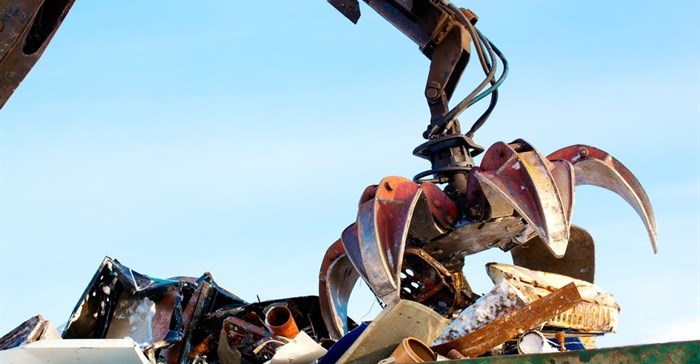
Top stories






More news


Marketing & Media
Ads are coming to AI. Does that really have to be such a bad thing?














Growing pressure on the environment and on natural resources can no longer be ignored. We are all paying the price indirectly through air pollution, environmental degradation, bursting landfills and resulting health impacts. The challenge facing companies is how to provide adequately for this liability, or better yet, how to prevent it from arising.
In South Africa, for example, we introduced a cost for one-time plastic shopping bags which is currently at about R0.45c/bag. Most consumers have become accustomed to the cost associated with the purchase of plastic bags. Yet, most recyclers don’t collect them because they need to collect about 80 bags to earn R0.35c. So, although the problem has reduced, we still have a big plastic bag litter problem. Consider that if just R0.10c of the fee charged at the till were paid to the informal collectors for each bag collected that would be worthwhile income, and the bags would all be collected.
It’s notable that we are seeing an increasing amount of support for recycled plastic from retail and brand owners who are recognising the importance of including recycled content in their products. A key example of this is the recently launched Mpact Polymers business, which has a new bottle-to-bottle facility in South Africa that will produce recycled polyethylene terephthalate (rPET) as a substitute for virgin PET, derived from crude oil. The plant will process 29,000 tonnes of post-consumer PET bottles diverted from landfills each year, while CO2 emissions will be reduced by approximately 53,000 tonnes each year. The challenge is to ensure sustainability and drive the collection rate to the ultimate goal we must have of 100%.
This is the challenge REDISA’s waste tyre management plan is addressing. REDISA has created a model of Extended Producer Responsibility in the waste tyre industry that can be understood as a form of environmental insurance that stabilises and supports the tyre recycling industry and is on target to reach 100% collection by the end of 2017. The money collected can therefore be applied to building and supporting collection and recycling systems and processes. The plan not only mitigates the environmental and resource consumption demands of an industry but also allows brands to manage the liability that can arise from their daily business of meeting consumer needs and wants.
In the longer term, we also need to start another shift in society’s values. Just as it stopped being acceptable to empty one’s sewage into the streets a long time ago, and more recently it has become unacceptable to smoke in public places or when a guest in someone’s home, or to drink and drive, we need to drive awareness of how unacceptable it is to simply mix together all the different kinds of waste. Building this kind of awareness, and building smarter systems for collecting waste takes money, and the insurance money would go towards that.
Currently, consumers are indirectly paying the price of waste through local and national taxes. The reality is that most businesses do not consider the waste that comes from their products or operations as their problem, and few factor the cost of recovering and recycling this waste into the manufacturing cost. Essentially, REDISA ensures that the product manufacturer is responsible for the entire life-cycle of the product and especially for the recycling and final disposal thereof.
Whilst participating in the recent European Development Days conference in Brussels, and speaking with leaders from around the world on the panel ‘Circular Economy/Sustainable Consumption and Production’, I realised that there is still a vast difference between how countries in the developed and developing worlds define and understand sustainability, and that more needs to be done for us all to see the circular economy as being more than recycling. Closing this gap in understanding will continue to be critical to advancing development strategies that work to advance the circular economy further.
By integrating sustainability into their business models and purpose, companies can both help society and increase goodwill toward their brands. For us, true sustainability is sustainable development. It means balancing economic growth, infrastructure development and creation of small business opportunities, as well as jobs to the poor, while lowering our emissions and overall impact on the environment.
